How to use the chrysanthemum symbol in Feng Shui to enhance your home
This is how to use the chrysanthemum symbol in Feng Shui in every room

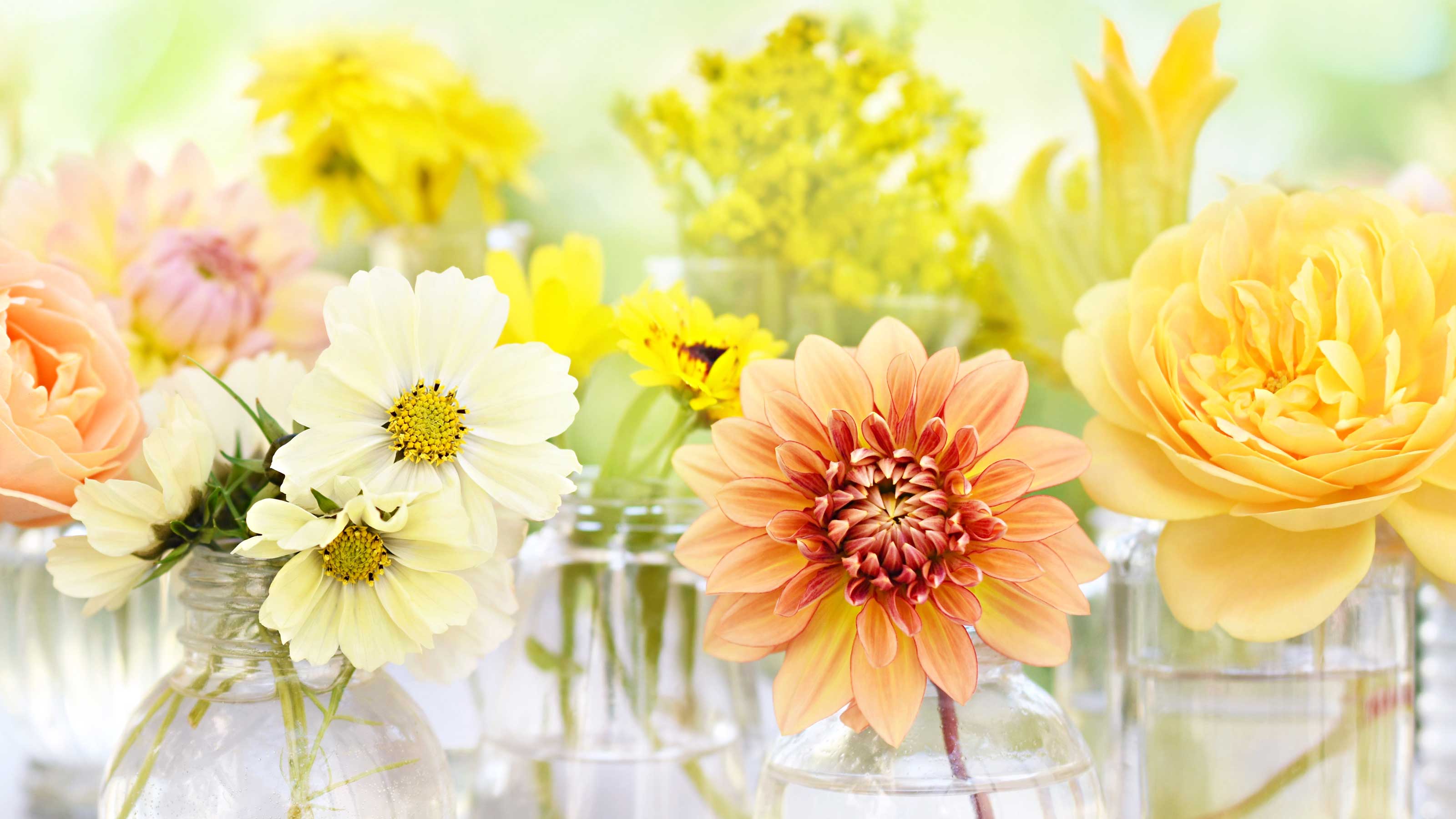
Design expertise in your inbox – from inspiring decorating ideas and beautiful celebrity homes to practical gardening advice and shopping round-ups.
You are now subscribed
Your newsletter sign-up was successful
Want to add more newsletters?

Twice a week
Homes&Gardens
The ultimate interior design resource from the world's leading experts - discover inspiring decorating ideas, color scheming know-how, garden inspiration and shopping expertise.

Once a week
In The Loop from Next In Design
Members of the Next in Design Circle will receive In the Loop, our weekly email filled with trade news, names to know and spotlight moments. Together we’re building a brighter design future.

Twice a week
Cucina
Whether you’re passionate about hosting exquisite dinners, experimenting with culinary trends, or perfecting your kitchen's design with timeless elegance and innovative functionality, this newsletter is here to inspire
Want to give your home a boost? Understanding how to use the chrysanthemum symbol in Feng Shui is a great place to begin. Often, when we think of the practice, it's about factors like furniture placement and wall color – but it turns out there's much more to designing your living spaces in line with the ancient Chinese tradition so that you can live in harmony with your environment.
The chrysanthemum flower is one of the easiest and most alluring ways to incorporate more Feng Shui into your home environment – because it's one of many plants, beloved by design experts, that is both versatile and long-lasting. We will explain its multiple important meanings within the practice, as well as the rules to follow when using it to enhance your indoor and outdoor spaces.
Additionally, we will take you through the basics if you are wondering what is Feng Shui as a wider concept, and also the potential importance of your living environment to your wellbeing. As you'll discover, it can involve everything from decluttering to letting as much light into your rooms as possible, as well as making special symbols – like chrysanthemums – a feature of your decor.
How to use the chrysanthemum symbol in Feng Shui – what is the practice?
At its core, Feng Shui is the ancient Chinese tradition of decorating your home so that it is in balance with the natural world. 'The words "Feng Shui" translate to "wind" and "water",' explains Diana Hathaway, an interior and Feng Shui designer. 'In the practice, "chi" energy is believed to be the movement of air that breathes life into everything.' She notes that what we do and don't love about our homes is often based on the unseen energy that surrounds us, and that adopting its principles through things like color and furniture arrangement can have a positive impact on how you feel.
As such, Suzanne Roynon, Homes & Gardens' Feng Shui expert and founder of Interiors Therapy, notes that Feng Shui is important because it can directly impact on our wellbeing. 'Unfortunately, many homes don’t offer their occupants a healthy and genuinely enjoyable lifestyle experience,' she explains. 'By understanding and activating Feng Shui, by removing obstacles to contentment and happiness, it is possible to change the energy within a home which can reignite relationships, boost finances and restore good health.'
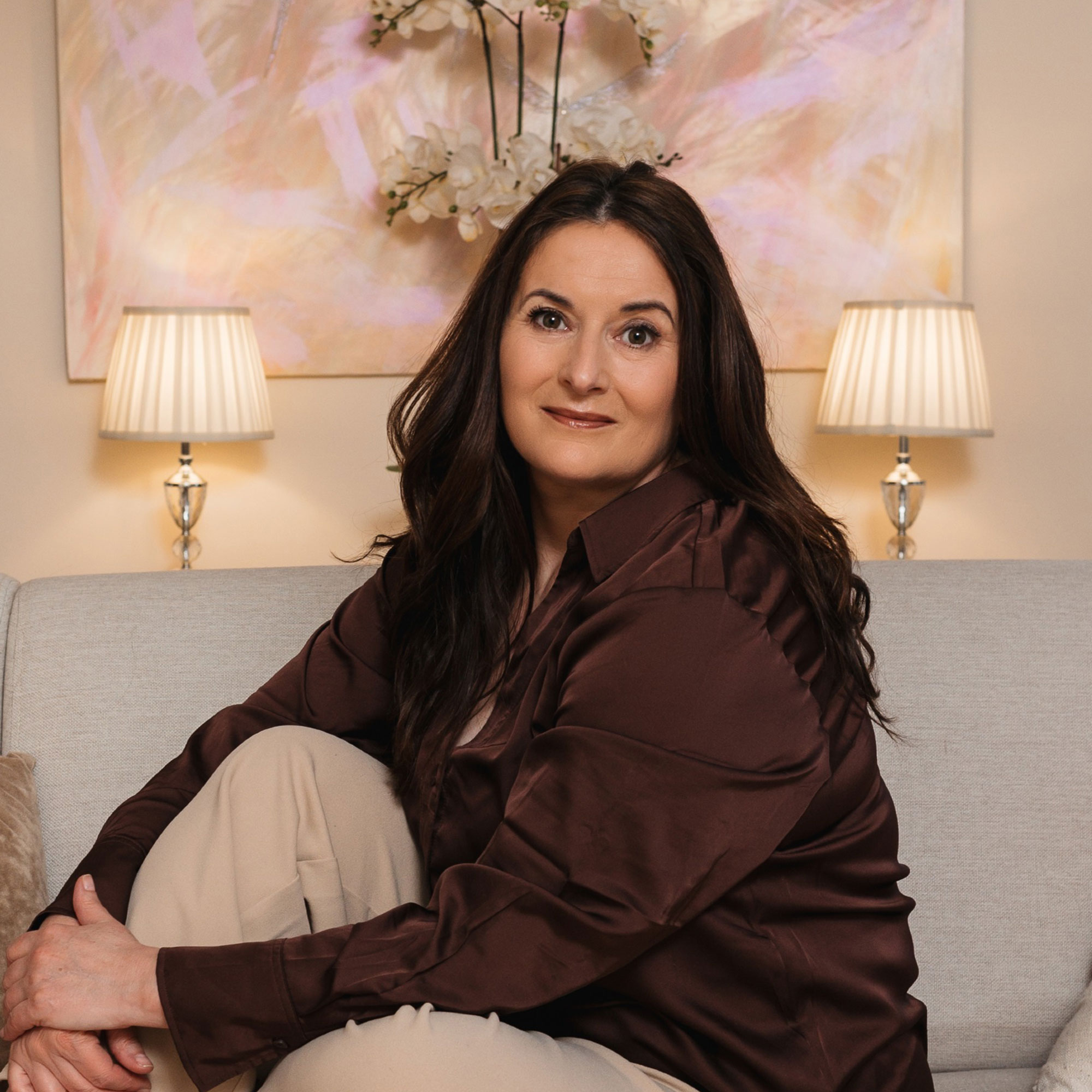
Suzanne is a Feng Shui consultant, interiors therapist and author of Welcome Home, How Stuff Makes or Breaks your Relationship – available at Amazon. She specializes in understanding the energetic impact of homes and certain possessions may have on all aspects of life, health and relationships, and the ways in which ‘stuff’ can actively prevent people and families from thriving and enjoying the lifestyle they deserve.
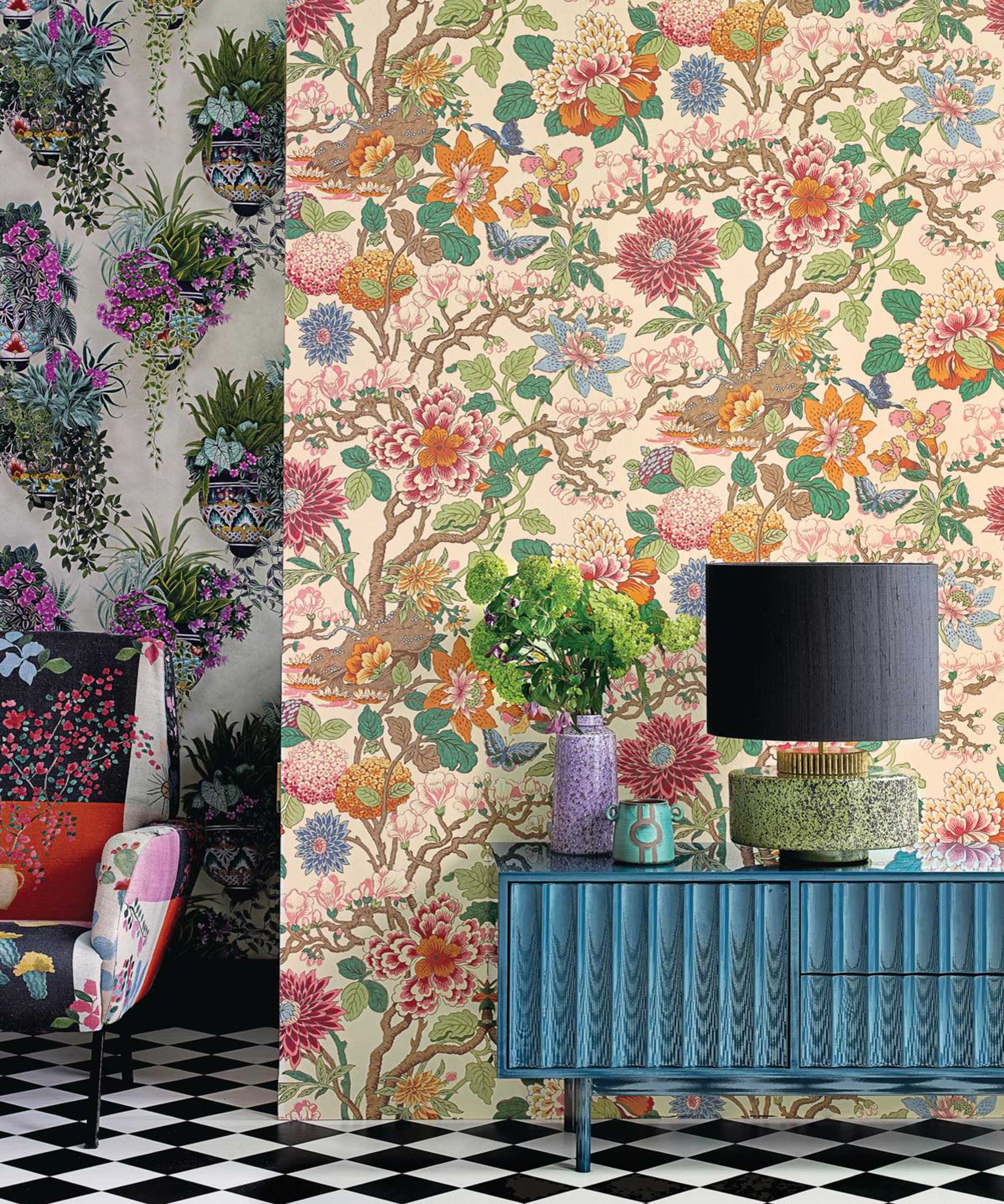
Chrysanthemum symbol in Feng Shui and meaning
The more you explore the practice the more you will come to realize that the power is often in the detail – including plants with particular Feng Shui meanings. 'Whether it’s fresh plants or natural surfaces, nature is an essential part of Feng Shui design,' points out Victoria Cedeno, interiors expert at Zinus. 'In particular, houseplants placed in the front entrance or living room will improve harmony and luck in the home. They also work well in bedrooms, where it's said they improve quality of sleep.'
One popular choice is, of course, the chrysanthemum. 'Within Feng Shui, it is a vibrant flower that is highly valued for its associations with longevity and endurance, and is said to bring happiness and good luck to any environment,’ explains Cedeno. Indeed, if you are in need of a mood boost, the plant is ideal. 'They are the feel-good flowers of Feng Shui,' adds Hathaway who also notes they are important for a balanced life and good fortune – the multiple petals are said to be symbolic of abundance.
Design expertise in your inbox – from inspiring decorating ideas and beautiful celebrity homes to practical gardening advice and shopping round-ups.
Chrysanthemums also emit another subtle message. 'Because they bloom right as the temperatures drop, they also speak to our stamina and resilience, implying great strength and a sense of accomplishment,' explains Amanda Gibby Peters, a Feng Shui consultant and the founder of Simple Shui. As such, the plant makes an excellent housewarming gift, and is a popular choice for celebrating new businesses and marriage.
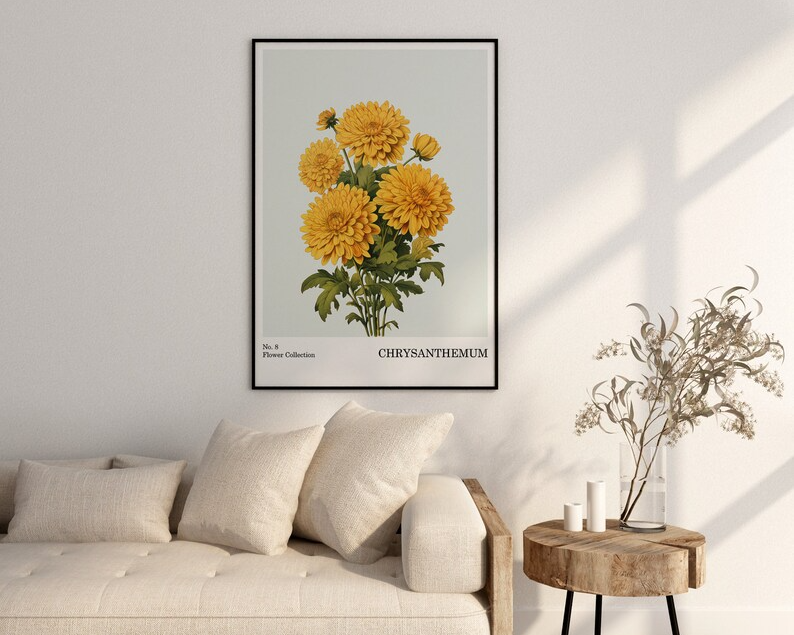
How to use the chrysanthemum symbol in Feng Shui in your home
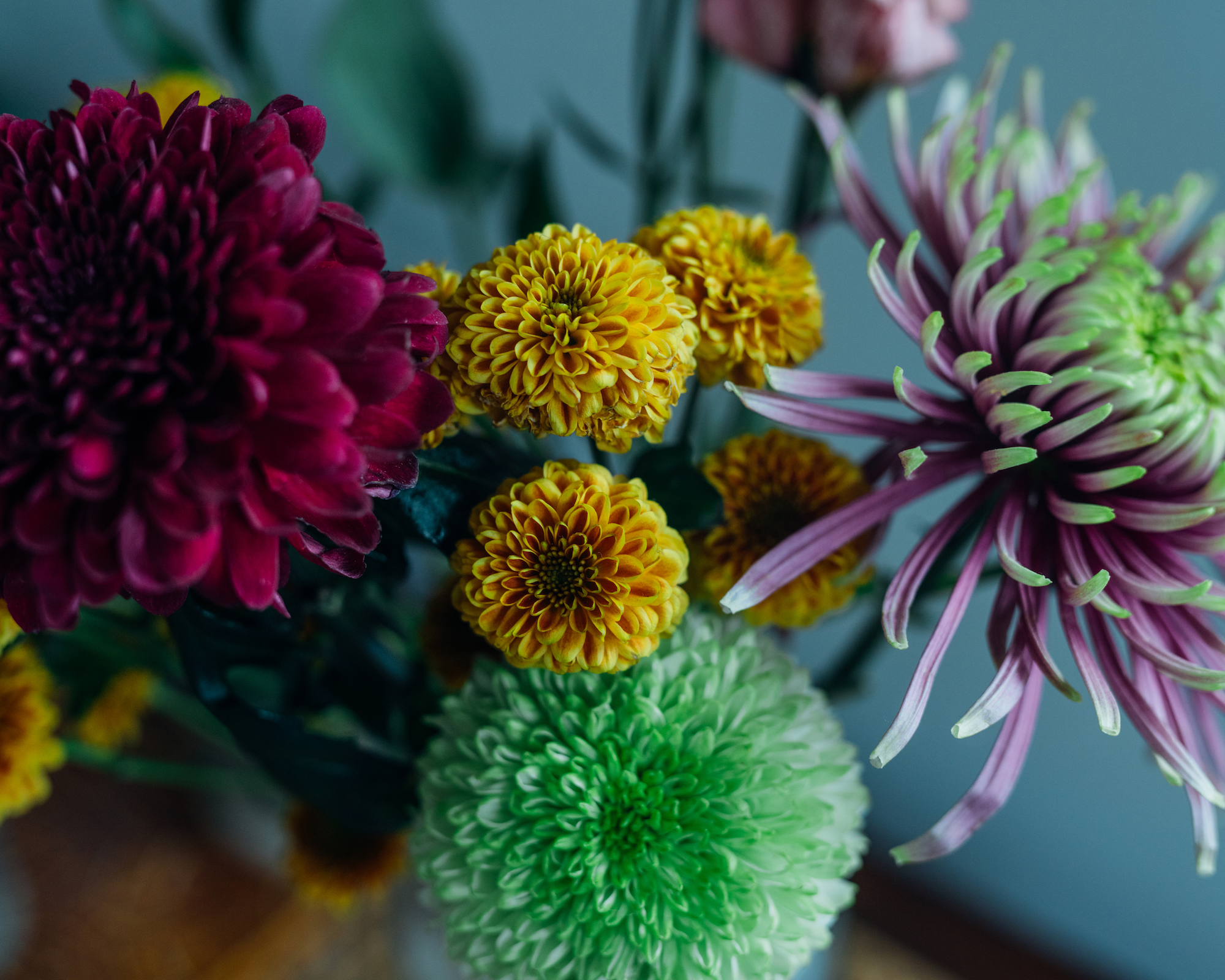
As mentioned, chrysanthemums tend to last a long time and be resilient in harsher weather. This means that you don't need to relegate them to inside the home. 'They can thrive outdoors, while bringing positive chi’i energy to the important front door and porch area of your home,' explains Hathaway.
If you do bring them indoors, then ensure that they are the focal point of the room. 'Place your chrysanthemums in the center of your home to support health and wellbeing,' suggests Roynon. 'They traditionally bloom as summer turns into autumn, so they are also symbolic of the later years of life. As such, consider placing them in the east of your home to boost good vibes for older members of the family.'
It's vital to remember to change out the water every day so it never becomes smelly or stagnant, and flower delivery companies like Floom can deliver fresh bunches to you regularly. However, you don't necessarily need to have the real deal on display. 'Whether it’s a chrysanthemum motif or the actual flower, it can be a beautiful and meaningful way to accentuate the mood and aesthetics of the home,' explains Cedeno. This can include vases, decorative plates or artwork like this print from print from Etsy.
FAQs
What does Feng Shui say about clutter?
A great first step to bringing Feng Shui practices into your home is to actually make use of all those decluttering tips you've read over the years. 'It starts with having a clearout and reorganizing each room,' says Cedeno. 'It is believed that excess belongings or furnishings can create stagnant energy, so it’s important to create a space that celebrates balance and minimalism.'
What color is good for Feng Shui?
Color scheme can also have a big impact on Feng Shui. 'It’s common for designers to base their choice on the five elements which are important in the practice – wood, water, earth, fire and metal,' says Cedeno. However, it also depends on what you are trying to achieve. 'The right shades will promote harmony and a sense of wellbeing, and so considering how these colors make you feel and impact your mood is key,' explains Helen Shaw, director of marketing at Benjamin Moore. For example, she notes that soft pastel hues such as pale blues, sage greens, pale pinks and lavenders will create a relaxing sanctuary and evoke a healing energy.
Depending on your decor, you can have fun with the color of chrysanthemums. 'They can be selected to enhance your home’s energy by choosing a calming and cool purple, or a vibrant warm gold to rev up a sleepy space,' notes Hathaway.
Lauren Clark is a freelance writer and editor with more than eight years of digital and print journalism experience. She covers all aspects of lifestyle, specialising in health and wellness topics, and her work has previously been published in titles such as Women's Health, The Times, Daily Telegraph, Stylist, Woman & Home, Grazia and Dazed.
